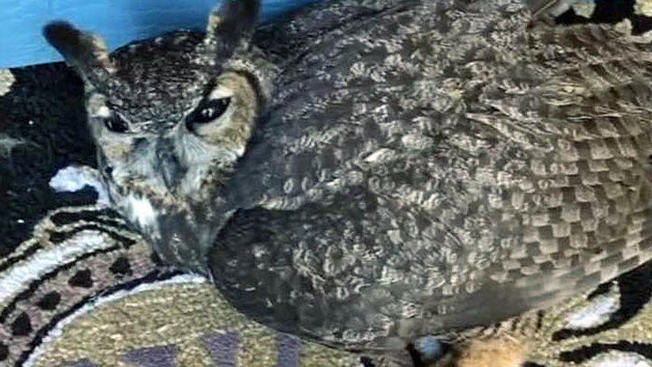Rodenticides or rat poison is a trusted way to get rid of the annoying rats in the house. That’s how they are advertised as but in reality, they are not made exclusively for rodents and can equally devastating effects on other animals as well.
Recently, a poisoned owl was found on the doorstep of a house in the US and eventually died. The homeowner suspected that the bird had been shot. But a state Fish and Wildlife investigation revealed the owl died from eating a rodent that had been poisoned by rodenticide.

Owls are native to the area and generally take the easy bait of dead rodents. “When you’re introducing a poison into the ecosystem, you’re not only affecting that animal they’re … targeting with the bait, but it’s also going to cascade down the ecosystem, the food web,” Wildlife Education and Rehabilitation Center Director Ashley Quick said.
The affected food web is not only limited to the birds. Rodents are the primary food source of many species. It attracts non-targeted wildlife species including chipmunks, squirrels, songbirds, bobcats and mountain lions among others. It is also harmful to children and pets.
“More and more cases are being discovered, with anticoagulant rodenticide poisoning in our local birds of prey and our local mountain lions and bobcats,” WERC President Joy Joyner said. “What we’re trying to do is create an initiative to educate the population on other humane ways to solve this problem.”
Most rat poison is Warfarin, which disturbs the normal blood clotting process when ingested. It inhibits the Vitamin K enzyme which is responsible for kicking Vitamin K to produce clotting. Internal bleeding and hemorrhage follow after that. A painful way to die.
There is also a relatively new rodenticide, Bromethalin, that acts differently. It is even worse. It is a neurotoxin that causes paralysis and coma and can kill within 15 minutes. If your pet or child or non-targeted wildlife ingest this, there is a greater risk of fatality.
Rodenticides can also lead to secondary poisoning. When cockroaches and other invertebrates eat the poison, it gets stored in their body and instead of killing them, affects the bodies of the animals that eat them.
Poisoned animals show signs such as difficulty breathing, internal bleeding, lethargy, and depression. Once this happens to wildlife, they can’t hunt effectively or move as fast. Before they bleed out and die, they risk being eaten by another predator (thus spreading the poison further) or being easily injured or hit by a car.
The perils of rodenticides don’t imply that one has to start living with them. Rodents can cause deadly diseases and infections. The best way to get rid of the rodents is to cover and seal up any cracks and holes in every corner of your house. Avoid leaving food around in the house. Snap traps can also help. One way to avoid their entry is to put Peppermint oil around the house.